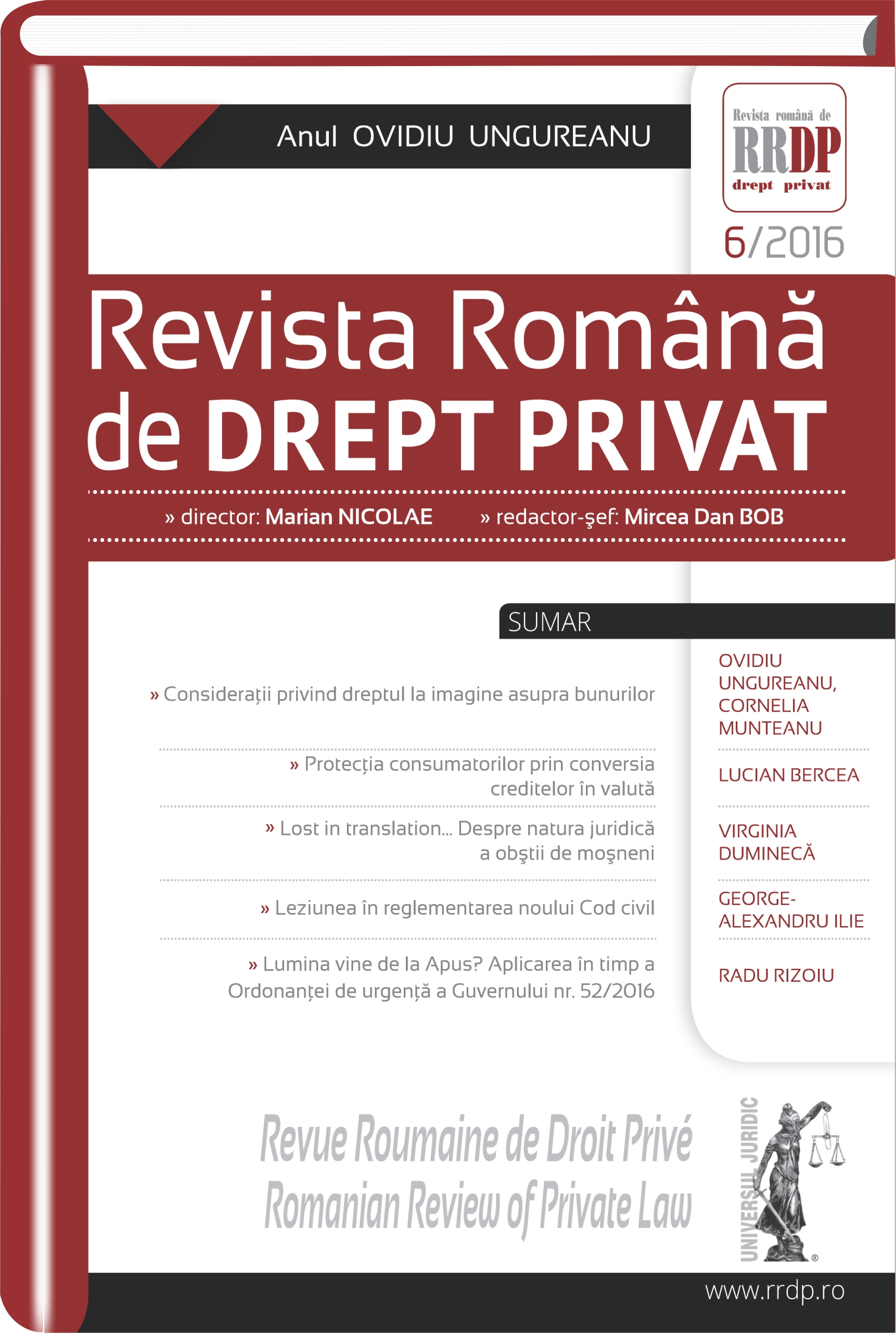Lumina vine de la Apus? Aplicarea în timp a Ordonanţei de urgenţă a Guvernului nr. 52/2016
The light comes from the West? The applicability of Government emergency Ordinance no 52/2016 to existing contracts
Author(s): Rizoiu RaduSubject(s): Law, Constitution, Jurisprudence
Published by: Universul Juridic
Keywords: G.E.O. no. 52/2016; conflict of laws in time; credit contracts; immovable property; the Directive 2014/17/EU; the principle of legal certainty; the principle of nonretrospectiveness of the civil laws;
Summary/Abstract: This article refers to the applicability of some provisions of the Government Emergency Ordinance no. 52/2016 on consumer credit contracts relating to immovable property (the „Ordinance”) in what concerns the conflict of laws in time provisions (tempus regit actum principle). The Ordinance is the transposition into Romanian Law of the Directive 2014/17/EU of the European Parliament and of the Council of 4 February 2014 on credit agreements for consumers relating to residential immovable property (the „Directive”). As the name of the two acts shows, the Ordinance does more than a mere transposition – it also enlarge the scope of the regulation. In addition, the Ordinance introduce several rules that are not to be found in the Directive. This paper analyses several peculiarities of the Ordinance (as a national normative act) as compared to the Directive (the union norm) in what concerns the application of tempus regit actum rule as well as the relevance of these differences for how to construe the text of the Ordinance. Mainly, it is showed the position of the European Union Law compared to the Romanian Constitutional Law as well as the main principles governing the two areas of law. It finds an answer on how to harmonize the union principle of legal certainty with the constitutional principle of non-retrospectiveness of the civil laws. Based on these general findings, the study offers a guide to construe the tempus regit actum rule as found in the Ordinance with a special view on certain specific cases of modifying the credit agreement. It is explained the concept of „executory contract” by comparing it to the terminology of the Directive in various languages and the Romanian relevant case-law. Also it offers solutions for the situations when an executory contract is amended after the Ordinance is enacted. Finally, several explanations are made regarding the tempus regit actum rule as applied to the addenda to the credit agreements, assignment of receivables and assignment of contract in what concerns executory credit agreements. The conclusion of the study is that the rule that offers equitable solutions in all these cases remains the traditional tempus regit actum principle, despite modern attempts to overcomplicate the scenarios for searching new rules.
Journal: Revista Română de Drept Privat
- Issue Year: 2016
- Issue No: 06
- Page Range: 161-186
- Page Count: 26
- Language: Romanian
- Content File-PDF

